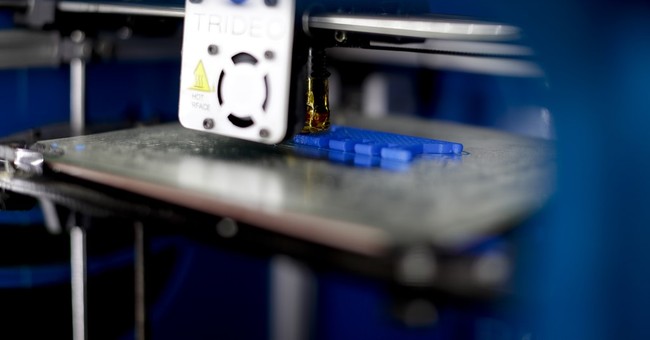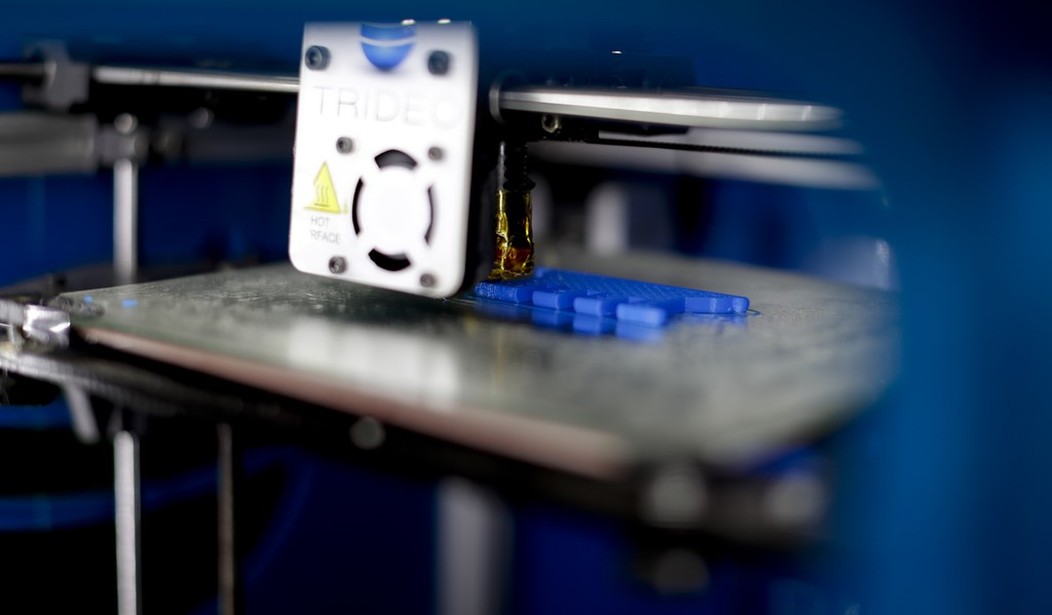
Gun control is the dream of every wannabe statist dictator and naive do-gooder alike. The latter think that removing guns will suddenly force humanity to stop all animosity toward one another, hold hands, and sing Kumbaya. The former recognizes that an armed populace is a threat to any tyrant and pushes for gun control out of self-preservation.
However, a new ruling in a court case over 3-D printer files of guns has now made gun control virtually impossible.
FIVE YEARS AGO, 25-year-old radical libertarian Cody Wilson stood on a remote central Texas gun range and pulled the trigger on the world’s first fully 3-D-printed gun. When, to his relief, his plastic invention fired a .380-caliber bullet into a berm of dirt without jamming or exploding in his hands, he drove back to Austin and uploaded the blueprints for the pistol to his website, Defcad.com.
He’d launched the site months earlier along with an anarchist video manifesto, declaring that gun control would never be the same in an era when anyone can download and print their own firearm with a few clicks. In the days after that first test-firing, his gun was downloaded more than 100,000 times. Wilson made the decision to go all in on the project, dropping out of law school at the University of Texas, as if to confirm his belief that technology supersedes law.
The law caught up. Less than a week later, Wilson received a letter from the US State Department demanding that he take down his printable-gun blueprints or face prosecution for violating federal export controls. Under an obscure set of US regulations known as the International Trade in Arms Regulations (ITAR), Wilson was accused of exporting weapons without a license, just as if he’d shipped his plastic gun to Mexico rather than put a digital version of it on the internet. He took Defcad.com offline, but his lawyer warned him that he still potentially faced millions of dollars in fines and years in prison simply for having made the file available to overseas downloaders for a few days. “I thought my life was over,” Wilson says.
…
Two months ago, the Department of Justice quietly offered Wilson a settlement to end a lawsuit he and a group of co-plaintiffs have pursued since 2015 against the United States government. Wilson and his team of lawyers focused their legal argument on a free speech claim: They pointed out that by forbidding Wilson from posting his 3-D-printable data, the State Department was not only violating his right to bear arms but his right to freely share information. By blurring the line between a gun and a digital file, Wilson had also successfully blurred the lines between the Second Amendment and the First.
“If code is speech, the constitutional contradictions are evident,” Wilson explained to WIRED when he first launched the lawsuit in 2015. “So what if this code is a gun?”
The Department of Justice’s surprising settlement, confirmed in court documents earlier this month, essentially surrenders to that argument. It promises to change the export control rules surrounding any firearm below .50 caliber—with a few exceptions like fully automatic weapons and rare gun designs that use caseless ammunition—and move their regulation to the Commerce Department, which won’t try to police technical data about the guns posted on the public internet. In the meantime, it gives Wilson a unique license to publish data about those weapons anywhere he chooses.
“I consider it a truly grand thing,” Wilson says. “It will be an irrevocable part of political life that guns are downloadable, and we helped to do that.”
This is massive.
Wilson, by winning this fight, has now made gun control virtually impossible.
Oh, sure, states can ban making your own gun. They already have in a few places. But with 3-D printers, even that can be sidestepped. Those laws are, as always, only effective on the law abiding.
It’s time that lawmakers in anti-gun states come to terms with the fact that technology has made certain types of laws completely useless. As much as we may all want to disarm criminals, it’s a lost cause. Claims that laws curtailing legal gun sales will impact criminals obtaining guns are now essentially null and void.
The only viable alternative is to allow law-abiding citizens to arm themselves as a means of defense. Plain and simple.








Join the conversation as a VIP Member